‘I am going to tell you a story,’ I said, ‘because stories explain the things we can’t control.’
I seem to be reading a lot of books about windfucked places lately. Windfucked they might be, but they are also places where one can almost feel stories wander about and get under one’s skin. Last time I went to Aran Islands, lay down on the edge of a cliff, and looked down at the foaming sea, I had this feeling. I also had that feeling when I climbed into a tiny cave in Roscommon. I am quite certain that a tiny Scottish island is one such place, which is why The Visitors by Simon Sylvester doesn’t seem fantastical to me. Of course there would be any number of strange things afoot.
 I have an obsession with weirdness in fiction. I’m drawn to environments that seem ordinary but then turn out to be slightly askew. This doesn’t really mean urban fantasy, where the weird is actually explicit, made manifest fairly early on in the form of fairies or vampires or werewolves. No, it’s the slightly uncertain weirdness — someone may or may not be a mythical creature, and it could work either way. This is one of the reasons The Visitors worked for me, and if uncertain strangeness is your idea of a good story, it will probably work for you.
I have an obsession with weirdness in fiction. I’m drawn to environments that seem ordinary but then turn out to be slightly askew. This doesn’t really mean urban fantasy, where the weird is actually explicit, made manifest fairly early on in the form of fairies or vampires or werewolves. No, it’s the slightly uncertain weirdness — someone may or may not be a mythical creature, and it could work either way. This is one of the reasons The Visitors worked for me, and if uncertain strangeness is your idea of a good story, it will probably work for you.
I felt as though I could thrust out my arm and break through the crust, reach a hand into another world. It felt so tangible, growing stronger by the hour, yet I somehow never touched it.
The Visitors is narrated by Flo, a teenage girl who is counting down days until her escape from the island named Bancree (‘Our traditional industries were fishing, whisky and peat. Only the whisky had survived.’). There is indeed a lot of water and a lot of peat, even where you don’t expect it: ‘his eyes were peatbog blank’. It’s atmospheric to the point that I felt cold and sort of regretted not having any decent single-malt in the immediate vicinity while I read the book.
An odd father and daughter pair moves into a house on an even tinier island next door, and Flo, not having much luck with finding friends at school, befriends the daughter. There are also a number of strange disappearances on the island, which initially trick the reader into thinking that The Visitors is going to be mystery novel. But while it might be cataloged as such in a library, the mystery is rather in the background for most of the book, whereas myth is very much front and center. Flo gets assigned an essay on Scottish myths in her history course, and with that, The Visitors is not really a whodunit anymore, if it ever was. While Sylvester uses the usual mystery novel elements, his real purpose is to demonstrate the power of myths over our minds and make them the reason people do what they do. Incidentally, I am also listening to Stacy Schiff’s Witches right now, and it creates a fascinating perspective on what one’s mind can envision. The fantastical might be real, but there is always this uncertainty because human mind is uncertain and because often people who know the secret deny it or feign ignorance.
But that’s when Fergus falls into the loch and drowns himself, and old Mary sees a seal around the same time, and all of a sudden there’s a story to tell.
There is a story in one of Caitlín R. Kiernan’s collections called For One Who has Lost Herself. It’s about a selkie looking for her sealskin that had been stolen by a human. When I first read it, it affected me so much that it’s still the only story I remember from that collection. I have a weak spot for selkie myths because they are about transformation and loss. Not just the loss of sealskin, but what it means, freedom and loss of an identity. While selkies seem to move effortlessly between two states (seal and human), they hate losing one for another. It is as if their true self lies in change itself. They will escape safety if it means having an identity to claim as their own (something that rings quite true to me as a transman).
And this is what Simon Sylvester has created, a mystery novel that is also a story about stories, about strange things lurking nearby. It’s a story of change, and loss, and place, and about how we want there to be a home and an identity we can claim as our own.
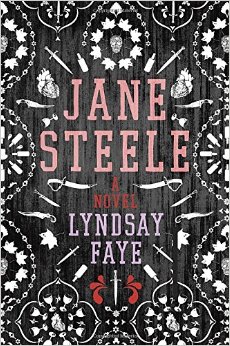 Afterwards, a couple of books were picked up and then abandoned after a handful of pages, and then I read a memoir that was fine until it used the ‘t’ word to refer to a certain type of bar. It seems that its author is one of those gay men who remain largely ignorant of the fact that certain terms are no longer kosher to use (see also John Barrowman’s usage of the same word a few months ago).
Afterwards, a couple of books were picked up and then abandoned after a handful of pages, and then I read a memoir that was fine until it used the ‘t’ word to refer to a certain type of bar. It seems that its author is one of those gay men who remain largely ignorant of the fact that certain terms are no longer kosher to use (see also John Barrowman’s usage of the same word a few months ago).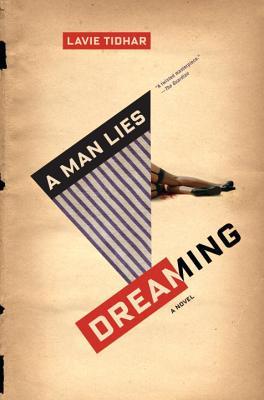 I could tell you that A Man Lies Dreaming by Lavie Tidhar is a pulpy and visceral alternate history noir revenge fantasy, but no blurb can adequately describe what this book is. You can’t talk about it without spoilers, and I pity the person who had to do the blurb on the inside cover. It is vague and it’s vague on purpose. A bitter private detective is living in a world where Hitler’s party is no more, Germany is taken over by Communists, and Nazis are fleeing to England. In another world and time, a man in Auschwitz is dreaming of the world where a bitter private detective is living in a world where Hitler’s party is no more, and Nazis are fleeing to England. With me so far? The man dreaming happens to be a former writer of shund, which in prewar Yiddish theatre was considered to be cheap melodrama, trashy and vulgar. And so the world he dreams of is narrated in the manner of shund, with all the viscerality and vulgarity that it implies.
I could tell you that A Man Lies Dreaming by Lavie Tidhar is a pulpy and visceral alternate history noir revenge fantasy, but no blurb can adequately describe what this book is. You can’t talk about it without spoilers, and I pity the person who had to do the blurb on the inside cover. It is vague and it’s vague on purpose. A bitter private detective is living in a world where Hitler’s party is no more, Germany is taken over by Communists, and Nazis are fleeing to England. In another world and time, a man in Auschwitz is dreaming of the world where a bitter private detective is living in a world where Hitler’s party is no more, and Nazis are fleeing to England. With me so far? The man dreaming happens to be a former writer of shund, which in prewar Yiddish theatre was considered to be cheap melodrama, trashy and vulgar. And so the world he dreams of is narrated in the manner of shund, with all the viscerality and vulgarity that it implies.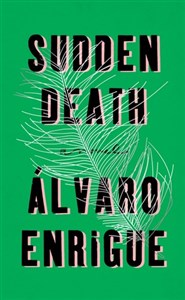 This might sound boring, except you get so caught up in Enrigue’s masterful blow-by-blow commentary that you are sucked into the book before you know it. Besides, consider that the tennis game in question is the game between Caravaggio and the Spanish poet Francisco de Quevedo. They are also doing it with a ball made with Anne Boleyn’s hair (shorn off her head before she lost it to the sword). But how did they come to possess such a thing and why are they playing at all? They both seem to be dreadfully hungover and not at all in the mood.
This might sound boring, except you get so caught up in Enrigue’s masterful blow-by-blow commentary that you are sucked into the book before you know it. Besides, consider that the tennis game in question is the game between Caravaggio and the Spanish poet Francisco de Quevedo. They are also doing it with a ball made with Anne Boleyn’s hair (shorn off her head before she lost it to the sword). But how did they come to possess such a thing and why are they playing at all? They both seem to be dreadfully hungover and not at all in the mood.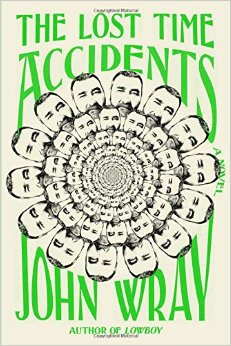 I started John Wray’s Lost Time Accidents a week or so ago and then realized I could only read it on days when I had stretches of uninterrupted time. It is a novel that I guess would be described as ‘literary genre’. In this case, it is a genre novel both because it is a historical novel and because it speculates on the nature of time. Charles Yu wrote
I started John Wray’s Lost Time Accidents a week or so ago and then realized I could only read it on days when I had stretches of uninterrupted time. It is a novel that I guess would be described as ‘literary genre’. In this case, it is a genre novel both because it is a historical novel and because it speculates on the nature of time. Charles Yu wrote  I have an obsession with weirdness in fiction. I’m drawn to environments that seem ordinary but then turn out to be slightly askew. This doesn’t really mean urban fantasy, where the weird is actually explicit, made manifest fairly early on in the form of fairies or vampires or werewolves. No, it’s the slightly uncertain weirdness — someone may or may not be a mythical creature, and it could work either way. This is one of the reasons The Visitors worked for me, and if uncertain strangeness is your idea of a good story, it will probably work for you.
I have an obsession with weirdness in fiction. I’m drawn to environments that seem ordinary but then turn out to be slightly askew. This doesn’t really mean urban fantasy, where the weird is actually explicit, made manifest fairly early on in the form of fairies or vampires or werewolves. No, it’s the slightly uncertain weirdness — someone may or may not be a mythical creature, and it could work either way. This is one of the reasons The Visitors worked for me, and if uncertain strangeness is your idea of a good story, it will probably work for you.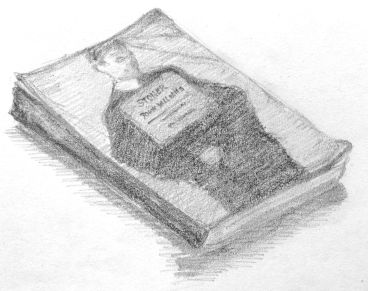 Stoner by John Williams was for years a shameful hole in my reading list. It is no more. And that is truly the best book I’ve read this year. It is a quiet book. It seems so plain and unassuming that it should be boring, and yet it’s not. It is beautiful and thoughtful. It is a great book for anyone regardless of reading taste.
Stoner by John Williams was for years a shameful hole in my reading list. It is no more. And that is truly the best book I’ve read this year. It is a quiet book. It seems so plain and unassuming that it should be boring, and yet it’s not. It is beautiful and thoughtful. It is a great book for anyone regardless of reading taste. But let’s move on to recent reads. My affair with strange and weird is in full swing, and Beatlebone is so strange and weird, it’s in its own category. First of all, Kevin Barry is a wizard and I want to eat his words with a spoon. Let’s look at few examples:
But let’s move on to recent reads. My affair with strange and weird is in full swing, and Beatlebone is so strange and weird, it’s in its own category. First of all, Kevin Barry is a wizard and I want to eat his words with a spoon. Let’s look at few examples: